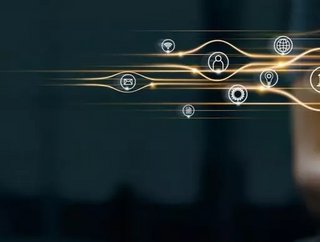Unwrapping the 2020 digital shopping surge

The Covid-19 crisis has had a dramatic and lasting impact on consumer shopping behaviours and accelerated the mass shift to online shopping. A recent study of 2,000 UK and US shoppers reveals how a staggering 58 per cent of consumers say the recent crisis has prompted them to seize the moment and try out shopping online for items they previously would have only purchased in-store. The research also highlights how the crisis has reset shopping habits, as consumers increasingly seek out digital channels that deliver the personalised interactions and experiences they crave.
With 43 per cent of shoppers planning to spend less this Christmas season, retailers will need to work smarter and harder to engage customers in the channels of their choice to maximise every revenue opportunity during Peak 2020.
Peak season: digital shopping behaviours will predominate
Even before the announcement of the second round of lockdown restrictions, over half (56 per cent) of UK consumers had plans to shop online for their holiday shopping purchases this year. This impressive surge in digital adoption means retailers will need to prepare for a continued uptick in demand for omnichannel services such as home delivery, click-and-collect and kerbside pickup, as consumers continue to hone their multi-channel skills.
But that’s not the only way that consumers are flexing their newfound digital skills. In the run up to the 2020 winter shopping season, a significant 20 per cent of UK consumers were planning to take advantage of remote personal shopping appointments to complete their holiday shopping purchases. One-to-one online video appointments proved a particular hit with 58 per cent of consumers aged 35-44, who awarded top marks to this digital channel.
Consumers confidently adopt new shopping modes
Today’s increasingly experienced digital shoppers have also proved more than willing to explore a variety of new retail touchpoints. Social shopping via platforms like Instagram and TikTok proved especially satisfactory for 62 per cent of those aged 35-44 and 48 per cent of those aged 45-54 who made their first purchases through this channel. Interestingly, 71 per cent of those aged 55-64 also rated their initial experience of this shopping mode as good or very good.
Other options that proved highly popular with a burgeoning cohort of omnichannel consumers included scan-and-go apps and virtual or augmented reality shopping. And it’s not just the younger generations that were more than happy to embrace these approaches; 75 per cent of those aged 65+ who tried virtual/augmented reality shopping rated the experience as very good.
New shopping behaviours are here to stay
The coronavirus crisis has propelled consumers into adopting new ways of shopping. For many, the ease and convenience of the innovative shopping modes they’ve encountered in recent months means they plan to continue to use these options well into the future.
Around a third of consumers (31 per cent) said they want retailers to continue to offer ‘click and collect’ and kerbside pickup services once the current crisis is over. Similarly, 27 per cent of all consumers are eager to continue taking advantage of virtual shopping opportunities via social media and video. Which means that finding ways to bring the in-store experience into consumers’ homes with live-streamed try-on and product discovery sessions will need to be a top priority for those retailers looking to accommodate these newly established customer expectations.
Looking to the future: reset omnichannel to deliver the experiences customers want
Indications are that today’s channel hopping consumers are becoming more than expert at crafting their own very individual purchasing journeys. Based on the goods and services they are buying, consumers will confidently blend options like shopping by appointment, audio, social media and video with omnichannel models like buy online and pickup in store to get the experience they need.
While online shopping is now established as the go to behaviour for both essential and non-essential items, the Covid-19 crisis has certainly helped elevate the importance of personalised interactions for consumers.
As the boundaries between offline and online fade as far as consumers are concerned, having the ability to seamlessly and conveniently ‘channel hop’ their way to the outcomes and shopping experiences they seek is what matters the most.
Once current lockdown restrictions are lifted, retailers and brands will need to re-evaluate their current omnichannel offerings to ensure these are fully aligned with consumer expectations. Whether that’s replicating the in-store experience online with offerings like virtual appointments and augmented reality options that enable customers to preview products in a highly experiential way. Or rethinking in-store services to make these more convenient, safer and more personalised with the introduction of options like pre-booked appointments, scan and go, and virtual aisle technologies that boost the ease and flexibility of the physical shopping experience.
John Federman is CEO at JRNI
- Advancing AI in Retail with Pick N Pay's Leon Van NiekerkAI & Machine Learning
- Tech & AI LIVE London: Christopher Blatchford (Kingfisher)Digital Transformation
- ICYMI: Sustainability key to the cloud and can we trust AI?AI & Machine Learning
- The store is dead, long live the storeDigital Transformation






